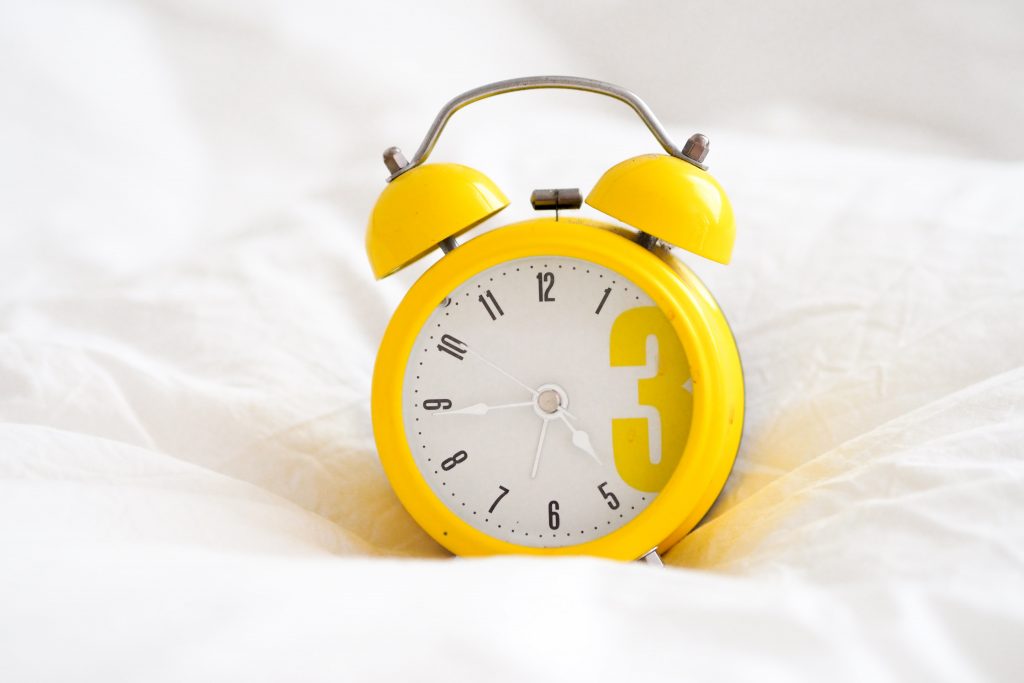There is an Irish Proverb, “A good laugh and a long sleep are the two best cures for anything.” It turns out there is a great deal of truth in that.
Anyone with children knows there are many things parents are willing to sacrifice for the benefit of their children. One of those is often sleep. From the moment their first child is born, sleep is not the same for parents for many years to come. Doctor Roxanne Prichard is a nationally recognized sleep expert, whose research shows on average new parents lose approximately 42 days of sleep in a child’s first year of life alone! Even after children are older and not waking up at night, parents are often up late doing laundry, packing lunches, emailing teachers, or any number of other things that could not be marked off the “to-do list” during a busy day.
Those late nights are frequently combined with early mornings. Families are up early for school or work on weekdays, and extracurricular activities on the weekends. “Decreased sleep is a nearly universal problem. Over the last 100 years the average amount of sleep adults get per night has decreased by 20%,” says Dr. Prichard.
Many parents probably realize those statements are accurate but think losing sleep is worth their kids having everything they need. However, parents could be doing a disservice to themselves — and their children — by not getting sufficient rest.
Losing more than sleep
Sleep deprivation can have a host of negative consequences on health. During sleep, the body rids the brain of toxins. If those toxins are not removed, there can be a decline in cognitive function. Insufficient sleep also leads to slower reaction time, which results in higher risk for injury and accidents, increased blood pressure, decreased immune response, and increased resistance to insulin, which is a major risk factor for development of diabetes.
According to Harvard University studies over the past 10 years, the quantity and quality of sleep a person gets can have a significant effect on both learning and memory. To effectively store information and consolidate and organize thoughts and memories you must obtain sufficient sleep. Though you are asleep, your body is busy doing things like producing growth hormone and leptin which are integral parts of regulating metabolism and controlling appetite. Thus, having less than ideal sleep may result in not having enough of these hormones and can lead to difficulty maintaining a healthy weight.
The bottom line is sleep is important to your overall health, not to mention physical and mental function. Sacrificing sleep for the sake of your children may have the unintended consequence of them having a less healthy parent.
Create a healthy sleep routine
Parents want to be the best and healthiest they can be for themselves and their kids. So, what can be done to improve your sleep health and thus your overall health?
- Prioritize Sleep – Don’t stay up late to write an email that can wait 12 hours to be sent. Go to bed early enough to get a minimum of seven hours of sleep each night
- Create a Supportive Sleep Environment – Decrease light by using blackout curtains or wearing a sleep mask. Turn off screens on all electronics that emit blue light. Try to keep the temperature close to 65 degrees (research shows this is the ideal temperature for quality sleep)
- Adjust Eating and Drinking Habits – Whenever possible, limit or eliminate caffeine or alcohol consumption 4-6 hours before bed.
- See a Medical Professional – If you are getting 7 to 9 hours of sleep but still wake up feeling tired or are waking several times throughout the night, you may have a medical reason that you are not getting quality sleep such as sleep apnea. This needs to be evaluated by a professional as soon as possible.
- Create a Routine – Try to go to bed within a half hour of the same time each night and wake the same time every morning. Doing this regularly allows the body to have more regular circadian rhythms and better regulation of many important bodily functions. If this is done for 2 or 3 weeks, you may get to the point of not needing an alarm clock!
WORDS: JAMIE CLAPHAM

